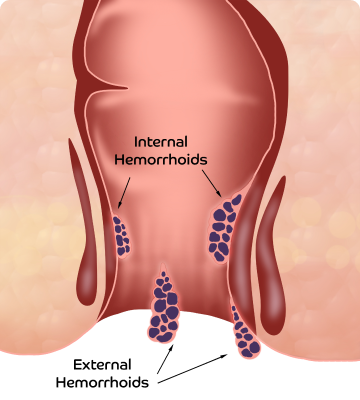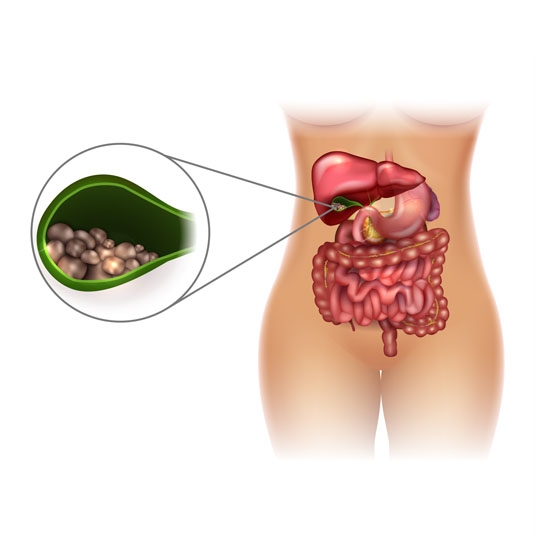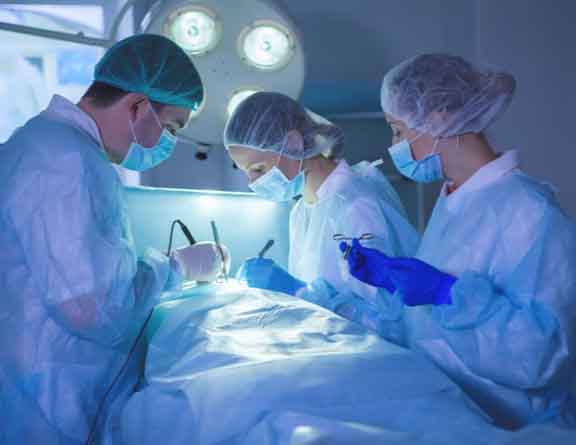Pristyn Care Provides Most Advanced Treatment for Gallstone in Coonoor
At Pristyn Care in Coonoor , we offer the latest laparoscopic technique for permanent gallstone treatment. We have a team of experienced doctors who are trained in the use of modern technologies to ensure safe and successful treatment for gallstones.
Pristyn Care is a highly patient-centric organization and our main motive is to provide each patient with an effective and seamless medical experience. Therefore, our surgeons provide advanced laparoscopic gallstone removal surgery. Laparoscopic surgery is a state-of-the-art procedure that resolves gallstones in a painless, minimally invasive, and completely safe manner. Contact Pristyn Care and schedule your appointment with one of our specialists in your area for the best treatment of gallstones.
Benefits of laparoscopic surgery for gallstones:
- No major incisions or sutures required- Minimal access surgery
- Minimal bleeding during the procedure
- No pain experienced by the patient
- Short stay in the hospital
- No long-term wounds or scars left behind after surgery
- Negligible risk of infections or side-effects
- Minimal discomfort post surgery
- Smooth recovery in less than a week
Why Should You Avoid Open Surgery for Gallstones and Gallbladder Problems?
Open surgery is the traditional procedure for gallstones and other gallbladder problems. The procedure involves carrying out a number of incisions on the body and is considered quite invasive in nature.
Some common risks associated with open surgery for gallstones and gallbladder problems are:
- Chances of blood clot formation
- Heavy bleeding from the site of incision
- Injured blood vessels
- Inflammation of the pancreas (pancreatitis)
- Abdominal infection
- Injury to the small intestine or bile duct
Highly Experienced Gallstone Surgeon in Coonoor
Pristyn Care understands that having the best team of doctors is important to provide best-in-class medical care. Therefore, we house doctors who are well-trained and certified in performing advanced laparoscopic gallstone surgery. Our surgeons have more than 15 years of experience in performing laparoscopic procedures. Over the years, they have gained enough knowledge and expertise that allow them to mitigate the risks associated with surgical procedures like gallstone removal surgery.
If you want to undergo laparoscopic gallstone surgery in Coonoor , get help from our expert doctors. They will treat the disease and also guide you properly so that you can recover easily after the surgery.
Pristyn Care Clinic for Gallstone Treatment in Coonoor
You can visit the nearest Pristyn Care clinic and consult an experienced laparoscopic gallstone doctor in Coonoor . We are associated with many clinics and hospitals to make advanced treatment accessible for everyone. Along with this, all of our partnered clinics and hospitals have state-of-the-art facilities to provide optimal care. Book an appointment with us today and undergo laparoscopic gallstone surgery in Coonoor at the nearest Pristyn Care clinic.
How do gallstones form?
A gallstone is a stone that forms inside the gallbladder due to precipitated bile components. The presence of gallstones is called cholelithiasis. The common reasons for gallbladder stone formation are:
- Bile containing too much cholesterol
- Bile containing excessive bilirubin
In all these cases, the excess cholesterol and bilirubin may start to crystallize and eventually turn into stones. Besides the above-mentioned reasons, there are two other factors that impact gallstone formation. The first one is the frequency and ability of the gallbladder contractions. If the contractions are incomplete and infrequent, the bladder won’t empty properly and cause the bile to become over concentrated. The second factor is the presence of proteins in the liver and bile that either promote or inhibit gallstone formation.
Initially, the size of these stones is equal to a grain of sand. However, it can grow quickly and become as large as a golf ball. Moreover, the gallbladder may contain one or multiple stones of smaller or equal size.
What are the different types of gallbladder stones?
Gallbladder stones are divided into three different types based on their composition. These types are explained below:
- Cholesterol Stones- It is the most common type of gallstone. Around 35% to 90% of stones present in gallstones are cholesterol stones. They can be light yellow, dark green, brown, or chalk white in color and have an oval shape. Usually, their size is between 2 to 3 cm long, but they can also grow larger if left untreated for a long time.
- Pigment Stones- This type of gallstone is composed primarily of bilirubin, which is an insoluble bilirubin pigment polymer, and calcium (calcium phosphate) salts present in the bile. Around 2% to 30% of stones present in the gallbladder are bilirubin or pigment stones. They are small and often dark in color.
- Mixed Stones- Also known as brown pigment stones, they are composed of 20-80% of cholesterol. The rest of the constituents can be calcium carbonate, palmitate phosphate, bilirubin, and other bile pigments, such as calcium bilirubinate, calcium palmitate, and calcium stearate. These types of stones usually form when the biliary tract gets infected.
All these three types of stones can be present in the gallbladder altogether or alone. But in each scenario, you will need proper treatment for them.
Why should gallbladder stones not be left untreated?
When left untreated, gallbladder stones can turn into a serious medical issue. If you don’t take a proactive approach for your health and consult a doctor to remove the stones, it can cause the following complications:
- Inflammation of the gallbladder(Cholecystitis)- When the stone gets stuck in the bladder, it will cause inflammation, severe pain, and fever.
- Blockage of the common bile duct- When the stones enter the bile duct and get stuck there, it causes infection in the bile duct, jaundice, and severe pain as well.
- Blockage in the pancreatic duct- Pancreas is connected to the bile duct directly. Hence, there is a high possibility that the stones can travel to the pancreatic duct as well. If this happens, it will cause inflammation in the pancreas (also known as pancreatitis). Due to the inflammation, you will experience intense and constant pain in the abdomen and may need immediate hospitalization.
- Gallbladder cancer- Frequent occurrences of gallstones can increase the risk of gallbladder cancer as well. Though it is rare, it is better that you seek proper treatment to reduce the chances of gallbladder cancer.
Ignoring gallbladder stones is not advisable under any circumstances. You should consult a doctor and discuss what you can do to get rid of the stones permanently.
Prevention of Gallbladder Stones
It is mostly our lifestyle that increases the risk of gallbladder stone formation. Therefore, you can prevent gallstones by making the following changes in your daily life:
- Do not skip meals- Try your best to stick with the usual meal times each day. Skipping meals can cause excess bile secretion and deposition.
- Lose weight slowly- Being overweight is a risk factor for gallstone development. So, if you are trying to lose weight, take things slow. Don’t push your body to its limits in order to lose weight as rapid weight loss can cause the liver to secrete extra cholesterol, which can further increase the risk of gallstones.
- Eat high-fiber foods- Foods that are rich in fiber ensure that the levels of bad cholesterol in the body are minimal. Furthermore, fiber keeps the digestive system moving and helps to flush out the bile from the body. Therefore, it is crucial that you add more fiber to your diet.
- Exercise regularly- It doesn’t necessarily mean that you have to do an extensive workout, being physically active is enough. The less you move, the slower the digestion process will be. As a result, the bile won’t flush out correctly. Invest some time in exercising and leave the sedentary lifestyle behind.
- Take prescribed medications- People who are at high risk of developing gallstones due to heredity or other factors can take medicines to lower the risk of gallstone formation.
You can talk to a gallstone specialist to find out what else you can do to prevent gallstones.
Dietary Changes for Gallstones
The food items that you eat on a regular basis have a significant impact on the body. If you eat a healthy and balanced diet and combine it with physical activities, it can lower the risk of gallstone development to almost negligible.
According to experts, the ideal diet for gallstones consists of:
- Fiber-rich foods like fresh fruits and vegetables.
- Whole grains, including brown rice, oats, whole wheat bread, etc.
- Fewer refined carbohydrates and less sugar.
- Healthy fats, such as fish oil and olive oil that helps to contract the gallbladder.
Along with knowing what foods to eat, you should also keep your cravings in check and avoid unhealthy fats, such as desserts and fried foods. Talk to your healthcare provider and ask them to make changes in your diet that will help you avoid gallstones and other health problems as well.









.svg)









